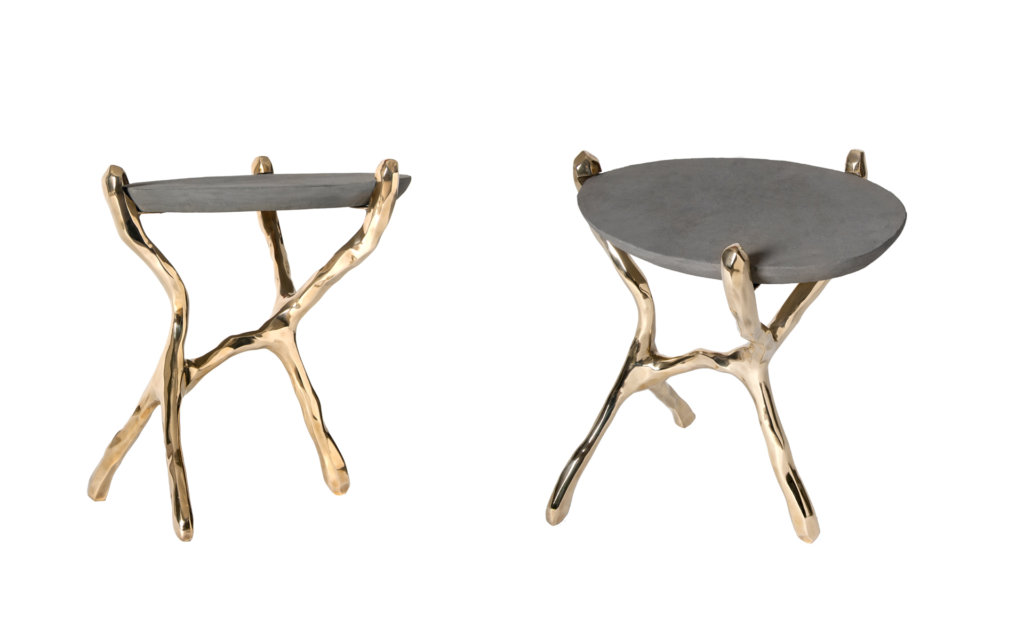“If you truly love nature, you will find beauty everywhere.” Vincent van Gogh
There’s a reason why Eric Brand made the conscious choice to model his entire luxury Juniper furniture line after elements found in nature. Now more than ever, it’s all too easy to lose sight of the fact that we are creatures born from an ancient wilderness. Between our phones and computers, we often find our waking hours navigating an artificial matrix consisting of social media and constant streams of data. Mentally-speaking, we’re frequently and completely disconnected from the natural world around us – the world that created us.
In fact, on average, Americans spend an overwhelming 93% of their time either indoors or in their cars, which means we’re typically only outside half a day per week. If you find this statistic depressing, then you’re not alone. This is precisely why Juniper was designed to help bridge the gap between our modern home and the rural fringes that surround it with high end luxury furniture inspired by nature.
There are perhaps no better examples of this than with our Branches Table (J11) and Coffee Table (J16B). The Branches Table takes a common element and re-imagines it in an uncommon way. This stunning piece features the organic silhouette of a tree trunk re-imagined in polished brass. Topped with lightweight, concrete-finished wood, the contrast evokes a juxtaposition of values.
Similarly, the Coffee Table (J16B) connects natural elements to the human touch. It was inspired by the idea of pouring liquid metal over natural wood and letting it fall and seep into the cracks. This work-of-art is finished in antique brass and works best with both small and large together.
We love these luxury pieces because while they look like they were plucked from the wild, they have been tamed and refined for elegant functionality. There is something so simple and evocative about pieces of wood being incorporated into a home. They stand as soothing reminders that no matter how far removed from nature we may be geographically, that we are always connected to our environment on a spiritual level.
Fortunately, appreciating nature is not only aesthetically pleasing, it’s also beneficial to our mental and physical health. “Environmental psychology” – such as Psychoevolutionary Theory and Attention Restoration Theory – reveal that we have positive reactions to nature and natural environments, which is also referred to as an instinctive “biophilia.” One of the most well known studies in this particular field demonstrated that patients who were hospitalized healed faster with a view of trees outside their window than with a view of a wall.
According to these studies, spending time in nature rather than man-made environments has three positive effects:
- Reduced stress
- Improved mood
- Improved cognitive performance
This is why some people are literally addicted to hiking or going to the beach. The therapeutic effects spending time outside can have on us is both subtle and profound. For these reasons, many people take pride in maintaining home gardens. But if you can’t have one, there are other ways to connect with nature in your home. Plants are the most obvious example, but natural elements can be incorporated into nearly every aspect of your home depending on what materials you choose.
Wood furniture is cherished among homeowners because of its durability and versatility – it can be finished to look like shiny marble or can be left raw and unstained to reveal its imperfections of knots and grains. Furthermore, wood comes in a variety of finishes, species and applications – from flooring and ceiling beams to shelving. Wood can also be reclaimed and refinished from older structures which makes it one of the more sustainable materials for crafting “new” furniture.
In an increasingly artificial world, it’s vital that we include natural elements into our homes. And to this end, Eric Brand seeks to strike a balance in our busy lives between modern civilization and the feral wilderness we used to call home with Juniper.

